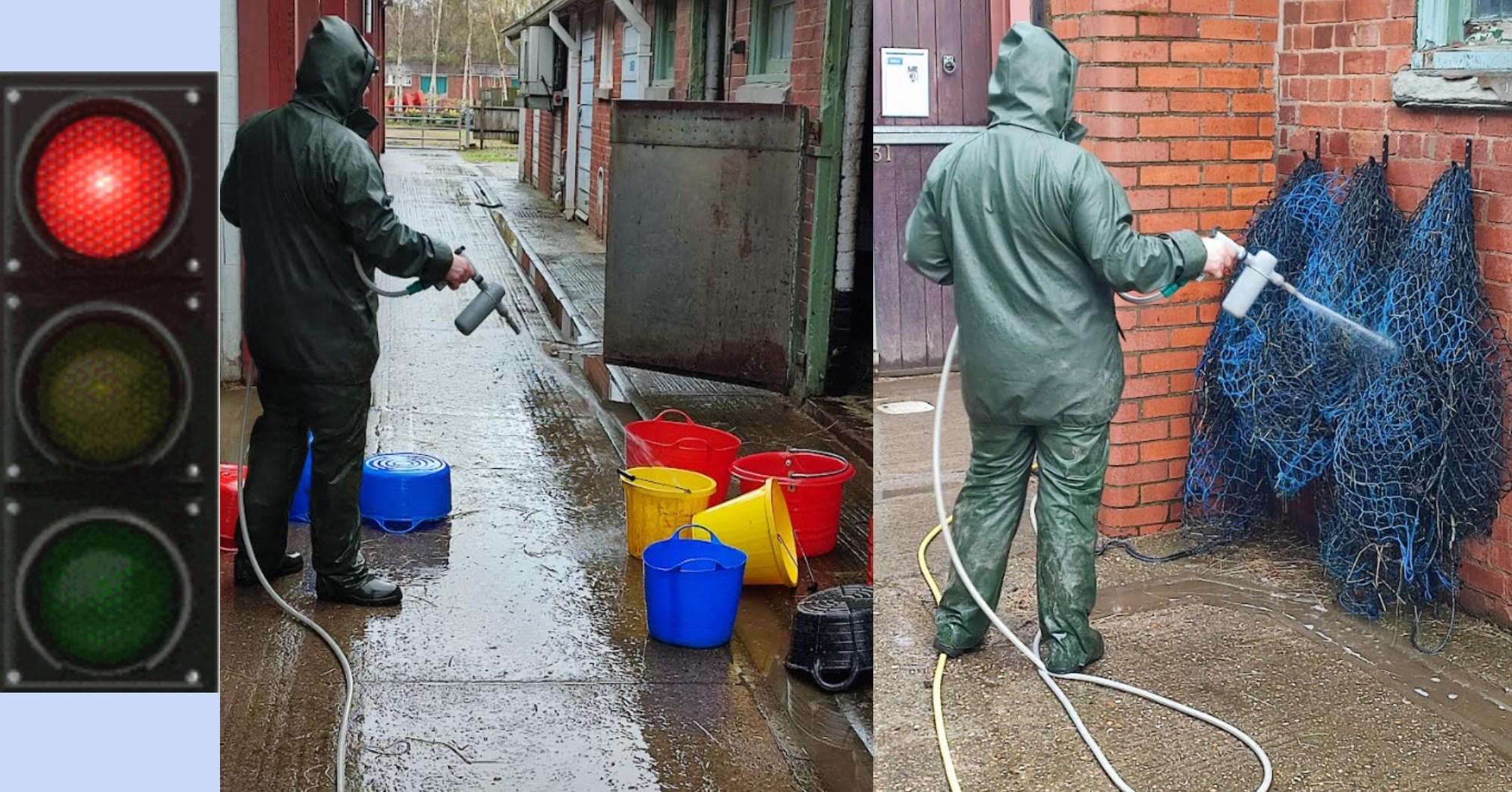Sound equine biosecurity protocols are key to minimising and containing infectious disease outbreaks. Every equestrian yard should have a clear biosecurity plan in place, which covers the screening and isolation of new arrivals, as well as the management and monitoring of suspected or confirmed infectious disease cases. This case study illustrates why biosecurity is so important for equestrian yards.
Early Detection is Key
The first step to containing an infectious disease outbreak is early detection and isolation of affected horses. Rubin lives on a yard where there is an excellent biosecurity plan in place. One morning, Rubin was found to have a runny nose and a temperature during routine daily checks. Given his symptoms, Rubin was suspected to have an infectious disease and was immediately isolated.
Containing the Outbreak
Biosecurity measures were put in place immediately and our equine vets were called in to examine Rubin. Testing revealed that Rubin had contracted EHV (Equine Herpes Virus), in the respiratory form. Rubin was treated and made a full recovery, but given that EHV can be very serious it was crucial that the outbreak was contained.
Thanks to rapid deployment of preplanned biosecurity measures, no other horses came down with the infection. In this case, routine biosecurity checks flagged up an immediate issue and as a biosecurity plan was already written, implementation was seamless and rapid. This ensured that no more cases occurred.
A Biosecurity Success Story
Rubin’s story is a shining example of excellent biosecurity measures. Having a clear biosecurity plan in place, which everyone on the yard is aware of, is crucial to identifying infectious disease outbreaks early and containing them. Ultimately, this leads to a better outcome for horses because they are less likely to become infected or seriously unwell from infectious diseases. Furthermore, it is beneficial to equine businesses because an infectious disease outbreak can force a yard to shut down for a prolonged period, resulting in loss of income.
Vaccination Against EHV
Vaccines are available against EHV, which can manifest in different ways. It is particularly important that pregnant mares are vaccinated as one manifestation is abortion. While the vaccine does not prevent a horse acquiring the disease, it has been shown to reduce multiple incidences of abortions on stud farms. Vaccination is generally not recommended in the face of an outbreak, as vaccinating a horse during the incubation stage of the disease may increase the chances of developing neurological signs, another manifestation of EHV.
Learn more about EHV with our guide
Biosecurity Advice | Avonvale Equine Vet Practice
At Avonvale Equine Vet Practice, our experienced and highly qualified equine vets can advise on biosecurity measures for your yard. We work with a number of commercial yards, including professional competition yards, racehorse trainers and stud farms, where biosecurity is important both from an equine welfare and a commercial perspective. If you need advice on biosecurity for your equestrian yard, please contact us on 01295 670 501 and speak to a member of our team.








